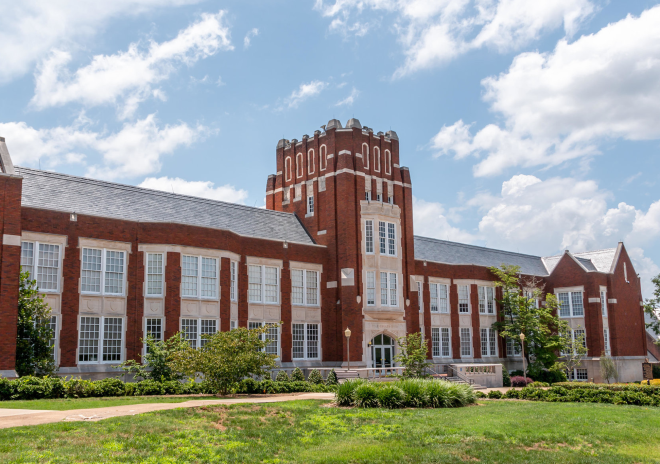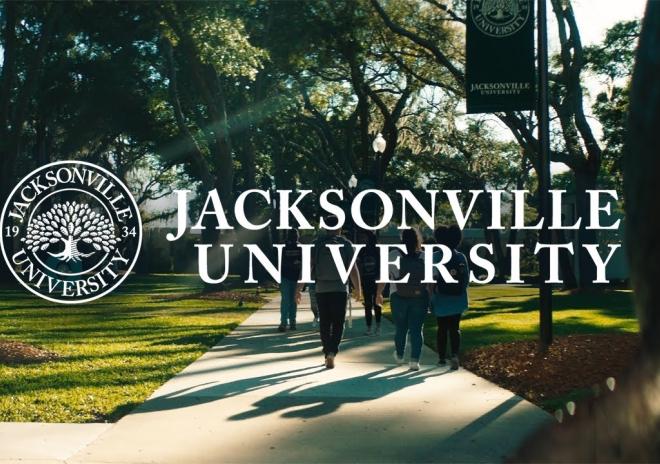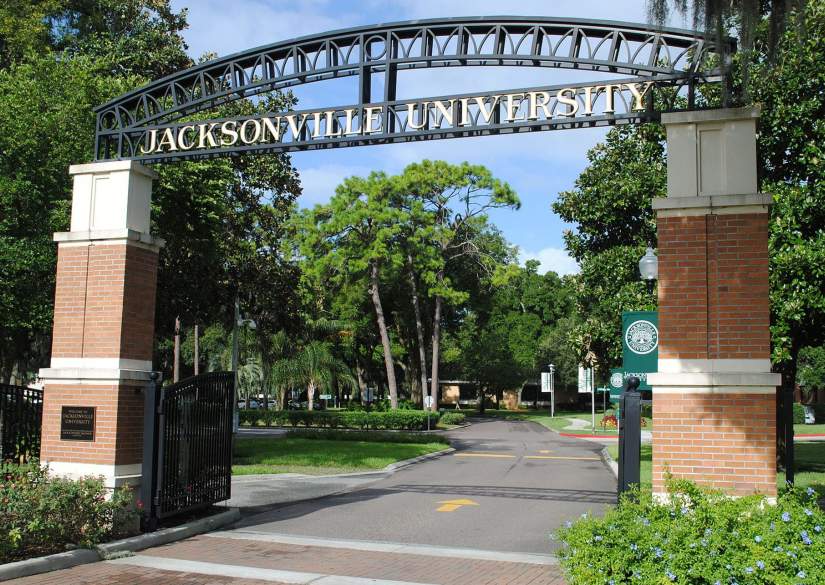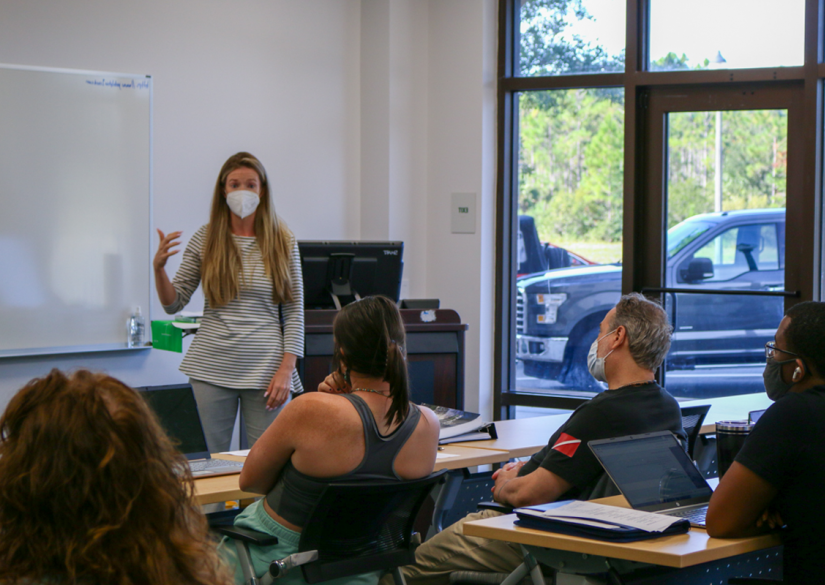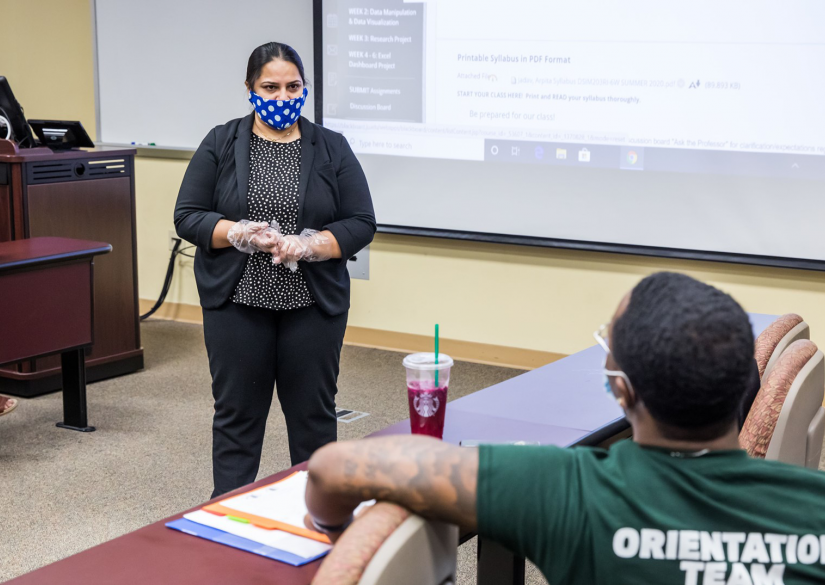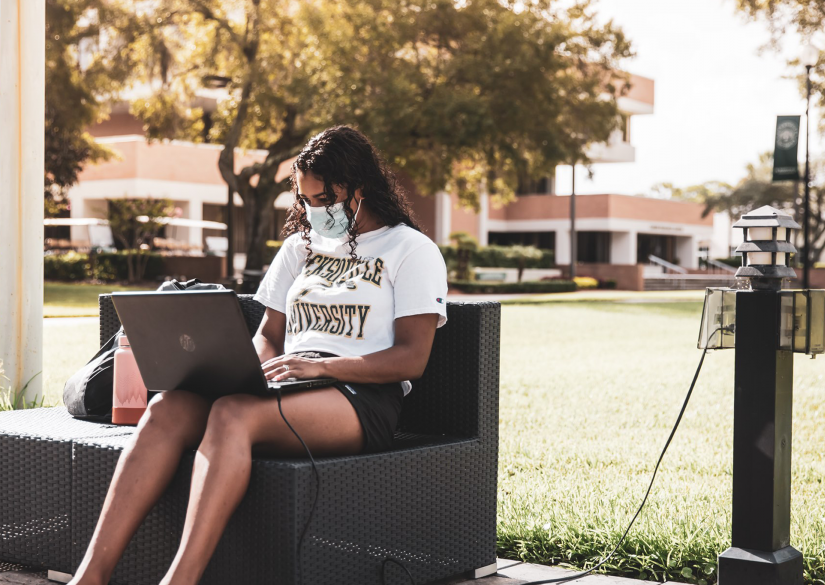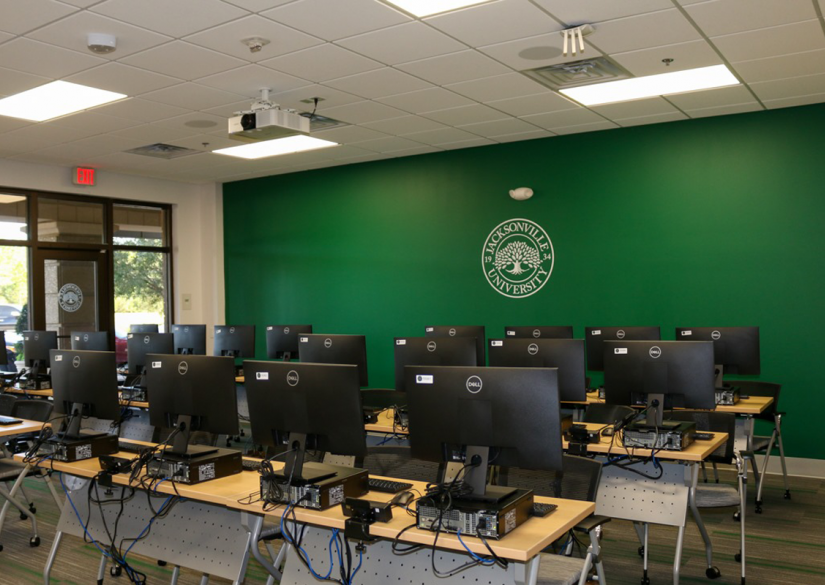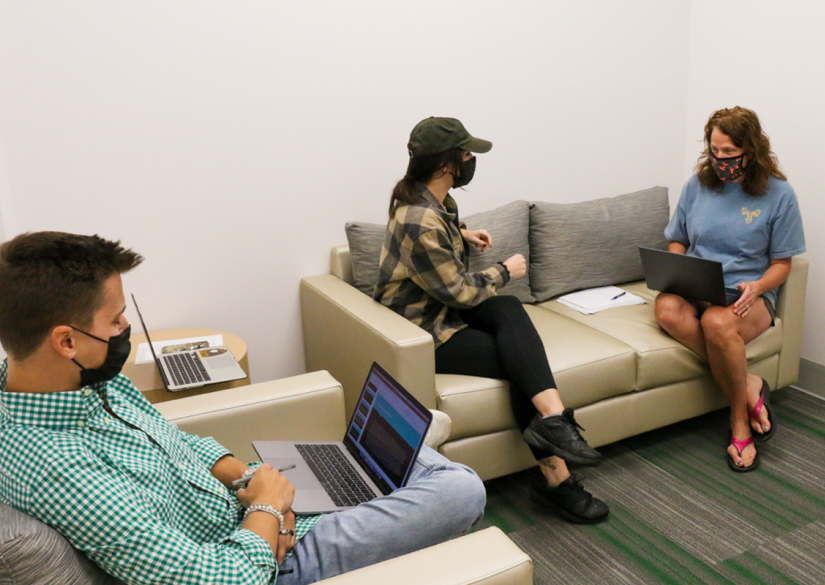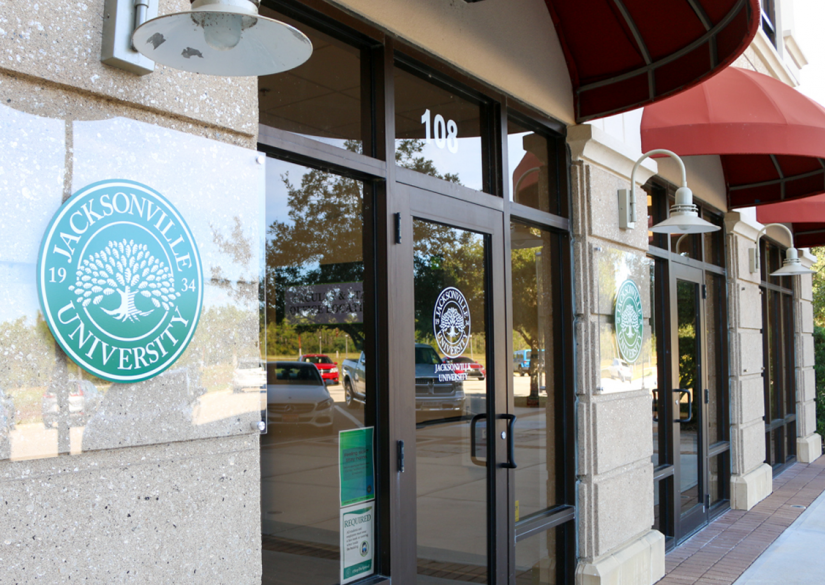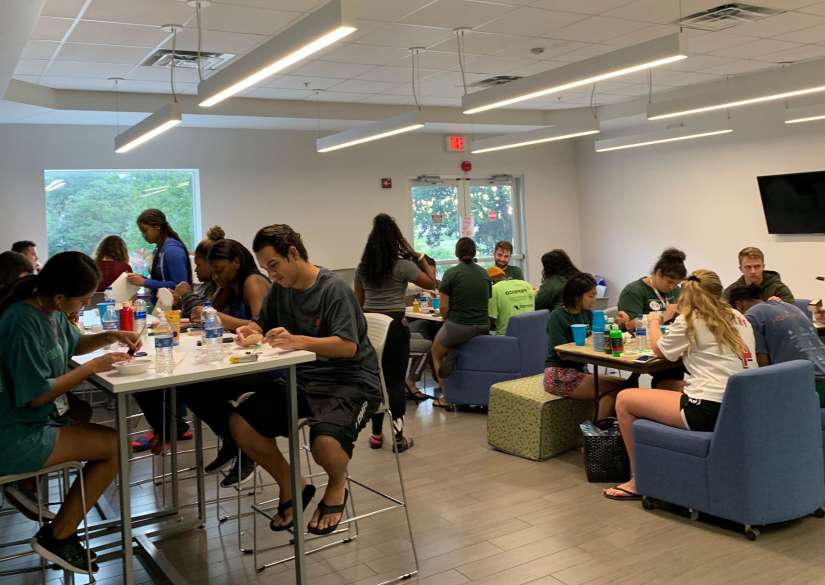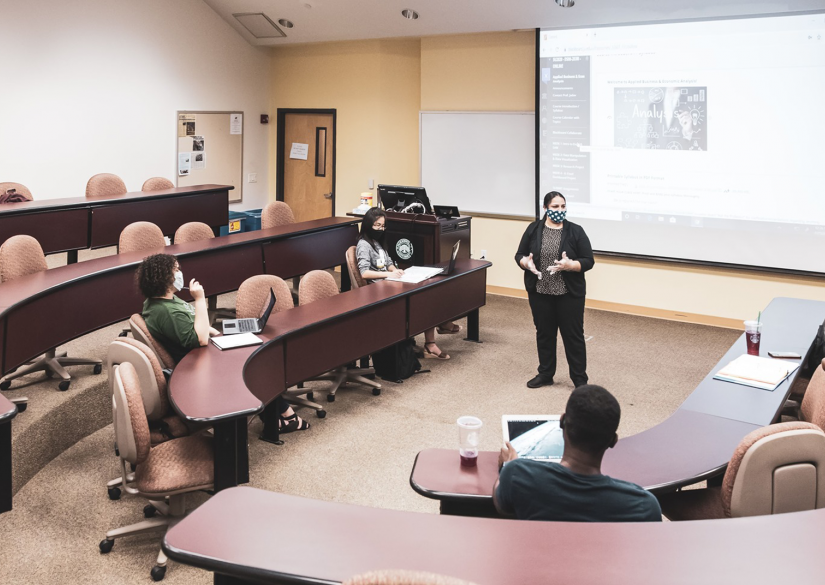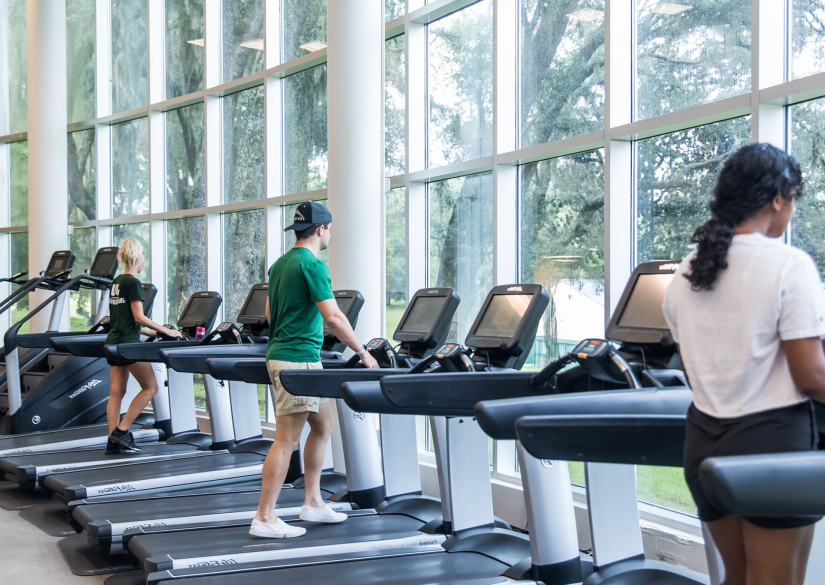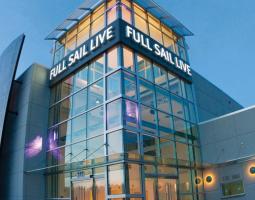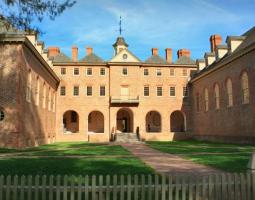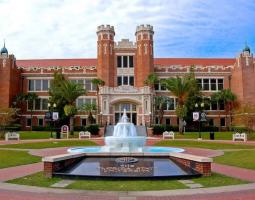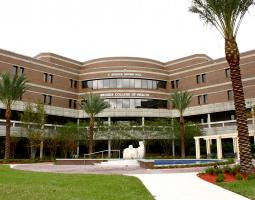Jacksonville University
Programs and prices, tuition fees in Jacksonville University
Bachelor
- Age – from 18 years (completed school)
- The training period is 4 years.
Some programs:
- Animation
- Music education
- Photography
- Visual design
- Aviation Management
- Aviation Control, Flight Control
- Navy
- Accounting
- Business Management
- Health Administration
- International Business
- Business Administration
- World languages, culture
- French
- Environmental planning.
Master
- Age – from 22 years
- The training period is 2 years.
Specialty:
- Choreography
- Visual arts
- Aviation Leadership
- Jurisprudence
- Business Administration
- Public policy
- Business Intelligence
- Nursing
- Dentistry, orthodontics
- Health Security
- Marine Sciences.
Doctorate
- Age – from 24 years
- The training period is from 1 year.
Program:
- Business Administration
- Business Administration in Healthcare Management
- Nursing Practice
- Occupational therapy
- Juridical Sciences.
Description of Jacksonville University
- Location: Jacksonville, USA
- Year of foundation: 1934
- Number of students: more than 4500
- Language of instruction: English
- Type: mixed.
Jacksonville University (JU) is a private university in the state of Florida.
This institution was founded in 1934 as a two-year college, until 1956 it was called Jacksonnville Junior College. In subsequent years, the development of the institution went uphill - four-year programs were introduced, the campus was increased, membership of independent colleges and universities of Florida was created.
At the moment, about 4500 students study here, and the main areas of study are aviation management, biology, medicine, business and marine sciences. In general, the institution provides more than 100 specialties of bachelor's, master's and doctoral studies. The teaching staff consists of more than 180 highly qualified teachers.
Faculties and colleges
- College of Arts, Sciences
- Davis College of Business
- College of Fine Arts
- Brooks College of Health Sciences Rehabilitation
- Research Institute of Marine Science
- Institute of Public Policy.
Things to know about
- Baseball students are coached by the most successful coach in the history of this sport – Terry Alexander. His practice has 631 wins.
- The former mayor of Jacksonville, Alvin Brown, studied at the institution.
Accommodation, meals, prices
53% of students live on campus in one of the dormitories or apartment-type houses.
- North Hall is a four-story building that can accommodate up to 270 people: freshmen, members of fraternities and sisterhoods.
- Williams Hall – 300 seats for freshmen.
- Botts Hall – up to 300 freshmen in double rooms.
- Oak Hall is a building that accommodates 500 high school students in double rooms with a shared toilet.
- Village Apartments – apartments, each of which is equipped for four students.
Living in dormitories, students share toilets, showers, laundries, kitchens and recreation areas with neighbors. With apartment accommodation for four students there is a kitchen, shower and toilet, household appliances. In the courtyards of all residential buildings there are areas for barbecue, sports training and recreation.
Accommodation will cost the student $ 4900 per semester in any of the buildings, and if the student wants to live alone - $ 6200 per semester. In the summer, the cost of housing decreases to $ 1694.
All students residing on campus must have a meal plan with a semester cost:
- Full access to the choice of dishes + additional 300$ – 2918$,
- Full access to the choice of dishes + additional 500$ – 3093$,
- Weekly 14 meals + 600$ in addition – 2760$,
- 75 meals per semester + 400$ – 1137$
- Only additional 150 or 300 $ - $ 135-270.
Additional dollars can be spent at cafes and canteens on campus. In the summer, students can purchase one of these meal plans:
- 35 meals + 100$ – 425$
- 75 meals + 75$ – 550$
- 15 meals per week + 75$ – 705$.
Activities Jacksonville University
The university's sailing team trains in the waters of the St. John's River three times a week: it includes both experienced sailors and freshmen who have just started their studies. In the fall of 2012, the team became the first such organization among colleges in Northeast Florida. Participants travel across the U.S. throughout the year, competing with colleges and universities.
JU is home to the Division 1 football team in the Pioneer Football League. The university supports more than 450 student-athletes, both financially and spiritually. The institution also has 18 sports teams under the single name "Dolphins". The most actively visited areas are men's lacrosse, football and rowing.
Most dormitories regularly host social events that are aimed at team building and identifying creative skills. There are many thematic clubs and student communities organized on campus, from sports and creative to religious and environmental. For example, the media organization regularly maintains the student newspaper The Navigator, a radio station, an art magazine that highlights university life and student achievements.
Every year, JU hosts a series of creative events, including music concerts, performances by dancers and theatergoers, artwork exhibitions, listening to poems, philosophy classes and much more.
Advantages
- Included in independent colleges, universities of Florida
- Accreditation of the Southern Association of Colleges and Schools, Association for the Development of Collegiate Schools of Business
- Students from more than 40 states, from 45 countries
- No. 41 in the US in the ranking of universities with a "price-quality" ratio
- For more than 10 years, he has been named the best college in the southern United States according to US News & World Report.
Facilities and equipment at Jacksonville University
The university is located on an area of 260 acres in the suburbs of Jacksonville. Near the campus is a beautiful promenade, the St. John's River, and the city center and the Atlantic Ocean are just a few minutes away.
On campus are built:
- Educational buildings, where, in addition to laboratories and lecture halls, there are living rooms
- Large library with reading room, computers for access to Internet resources
- Medical Building
- Canteens and cafes where students can eat according to meal plans and snack during breaks
- Games, gyms and playgrounds
- Fitness centre with swimming pool
- Baseball stadium, football and athletics fields
- Studios of creativity
- Halls for organizing events
- Parking area.
Admission dates and extra charges
There are several semesters and sessions in the academic year:
- Summer Session: May-August
- Fall Semester: August-December
- Winter session: November-January
- Spring semester: January-May.
The duration of the sessions is different for each specialty and even for each student. Vacations are organized in winter and summer after passing all academic disciplines.
Additional annual expenses:
- Accommodation – 9800$
- Meals – from $ 1137 per semester
- Public transport
- On-campus parking
- Books, consumables – 700$ per year
- Student Success Fee (fall and spring only) – $300 per semester
- Wellness services – 95-190$
- Medical insurance – 2445$.
Enrolment process
Step-by-step admission to JU:
- Fill out the application on the official website or in the mobile application of the university
- Submit documents to receive Form I-20
- Apply for a student visa.
You must apply by July 1 or December 1 - before the start of the new semester.
Enrolment statistics
Every year, out of about 7,000 applications for training, about 600 students are accepted, of which the vast majority are women.
Entry requirements, how to apply, what is required to enrol
For admission to the bachelor's degree:
- School certificate, official transcript
- English language test results: TOEFL (from 79 or from 550), IELTS (6.0), PTE (from 56)
- Personal documents: passport, student visa, form I-20, bank account report, etc.
Applicants for master's/doctoral studies:
- Diploma of a completed bachelor's or master's degree program with an average score of 3.0
- If the average score is lower, gre/GMAT should be provided
- English language test results: TOEFL (from 79 or from 550), IELTS (6.0), PTE (from 56)
- Personal documents: passport, student visa, form I-20, bank account report, etc.
Scholarships Jacksonville University
Types of financial support for students:
- Federal aid: grants, loans, loans
- Institutional scholarships, grant programs
- Family discount for those who have siblings studying at JU
- Scholarships for academically successful students
- Jacksonville Scholarships
- Sports grants
- Government programs that help Florida students.
Scholarships are awarded successful in sports, creativity or study, and grants can be received by foreign students or those who have financial difficulties.
Institution on the map
Residence permits, citizenship and other services
- Guardianship services during the studies
- Student supervision
Review about Jacksonville University
Recommendations on when to apply
| Language courses, schools and children's language camps | Primary and secondary education - private schools | Preparation programmes for entering universities - higher education | Higher education (after completing accredited programs A-level, IB, High School) - Bachelor, Master, MBA |
| - we recommend to apply 6-9 months before the start of the course (some camps and schools offer discounts for early booking or for lengthy study programs) - there are some very popular and high demand children's camps, where the applications need to be submitted 1 year in advance (in particular Switzerland , Great Britain , USA , Canada , Austria) | - we recommend to apply one year before the start of the training program, - some schools have a specific time frame (September-November - please specify an individual school) - some schools require tests in several stages (UKISET, internal tests of the school: English, mathematics, logics, subjects, interview, some require a personal visit) | - we recommend to apply one year before the start of the program, - for Foundation and Pathway programs, IELTS and TOEFL certificates are usually required, respectively | - recommended submission one year before the start of the program, - the deadline normally closes in January, for TOP HEIs and, as a rule, in March in other universities - for a bachelor, a Foundation or Pathway preparatory program a completed A-level, IB, High School + IELTS / TOEFL are required - for Masters you need a graduated higher education, in some cases you need a pre-Masters program - MBA requires completed higher education, work experience preferably at least 2-3 years, etc. |


